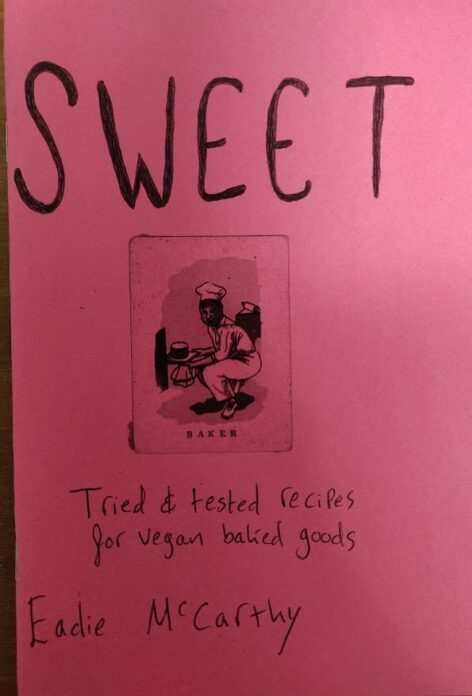The Story of Crass
£13.50
” Lucid in recounting their dealings with freaks, coppers and punks the band’s voices predominate, and that’s for the best.” An interesting if flawed telling of the CRASS story.
Only 2 left in stock
Description
Crass was the anarcho-punk face of a revolutionary movement founded by radical thinkers and artists Penny Rimbaud, Gee Vaucher and Steve Ignorant. When punk ruled the waves, Crass waived the rules and took it further, putting out their own records, films and magazines and setting up a series of situationist pranks that were dutifully covered by the world’s press. Not just another iconoclastic band, Crass was a musical, social and political phenomenon.
Commune dwellers who were rarely photographed and remained contemptuous of conventional pop stardom; their members explored and finally exhausted the possibilities of punk-led anarchy. They have at last collaborated on telling the whole Crass story, giving access to many never-before seen photos and interviews.
Reviews:
“Lucid in recounting their dealings with freaks, coppers, and punks the band’s voices predominate, and that’s for the best.” –The Guardian UK
“Thoroughly researched…chockful of fascinating revelations…it is, surprisingly, the first real history of the pioneers of anarcho-punk.” –Classic Rock
“They (Crass) sowed the ground for the return of serious anarchism in the early eighties.” –Jon Savage, England’s Dreaming
About the Author:
George Berger has written for Sounds, Melody Maker and Amnesty International amongst others. His previous book was a biography of the Levellers: State Education/No University.
PM Press Product Details:
Authors: George Berger
Publisher: PM Press
Published: Sept. 2009
ISBN: 978-1-60486-037-5
Format: Paperback
Page Count: 304
Dimensions: 9 by 6
Subjects: Punk Rock, Anarchism
Could Crass exist today?
While other bands were spraying anarchy symbols on walls, Crass were explaining how anarchy could work. Are we too cynical for punk idealism in 2009?
‘The Gandhis of rock’ … left to right: Gee, Eve, Steve and Penny, formerly of Crass, outside their ecologically friendly home in North Weald, Essex. Photograph: Martin Argles
Twenty-five years ago, Crass played their last gig, in Aberdare in Wales. As the guitar shrapnel settled, so ended the astonishing existence of the world’s only anarchist rock collective who formed as an extension of a stencil campaign.
There’s a great YouTube clip of a young and mod-like Penny Rimbaud, the eventual prime mover behind Crass, meeting an equally young John Lennon on Ready Steady Go in 1964. It’s a key moment because, in many ways, Crass took Lennon’s (occasional) idealism and ran with it further than any other group. Between 1977 and 1984, Crass released a series of records that challenged the status quo and defined the meaning of the words “rock revolution”. No group has come close to their fierce idealism. Let’s face it, no other group could be bothered to put up with the constant police harassment or the poverty.
Crass were the missing link between counterculture hippies and punk’s angry rhetoric. The fact they got so big with no radio play and music so uncompromising is testament not just to their communication skills, but also to their generation’s willingness to experiment.
The band released a series of records that spliced art-school (in the best possible way), avant-garde collage with white-heat, punk-rock anger. When Crass got mad, they got really mad, and they were ranting and raving at the UK during a mean and miserable time, when Labour buckled and Thatcher took over.
The music of Crass can only properly be understood in this context – the decaying nation, state brutality, the miners’ strike, the Falklands war, and the death of 60s idealism.
Sadly, we’re living through similar times now. Are we too cynical to create an answer like Crass did?
There are plenty of political rockers, and many are effective, working inside the mainstream. But Crass were very much on the outside and on their own terms – they were like the Gandhis of rock. They said no and people listened. Few could be bothered with that kind of hardship today.
Crass were always about more than just the music. They kept the flame burning with albums that came packaged in brilliant, incensed artwork from Gee Vaucher, and they were active in promoting pacifism, vegetarianism, communal living and hope in the middle of the collapse of punk rock. While others were spraying “anarchy” on the wall, Crass were patiently explaining what that term meant and how it could work.
Could someone repeat this in 2009? The political conditions are certainly there, and Crass’s back catalogue still sells strongly. The ticking time bomb of their idealism must surely live on in a new generation. But who knows when it will explode?





